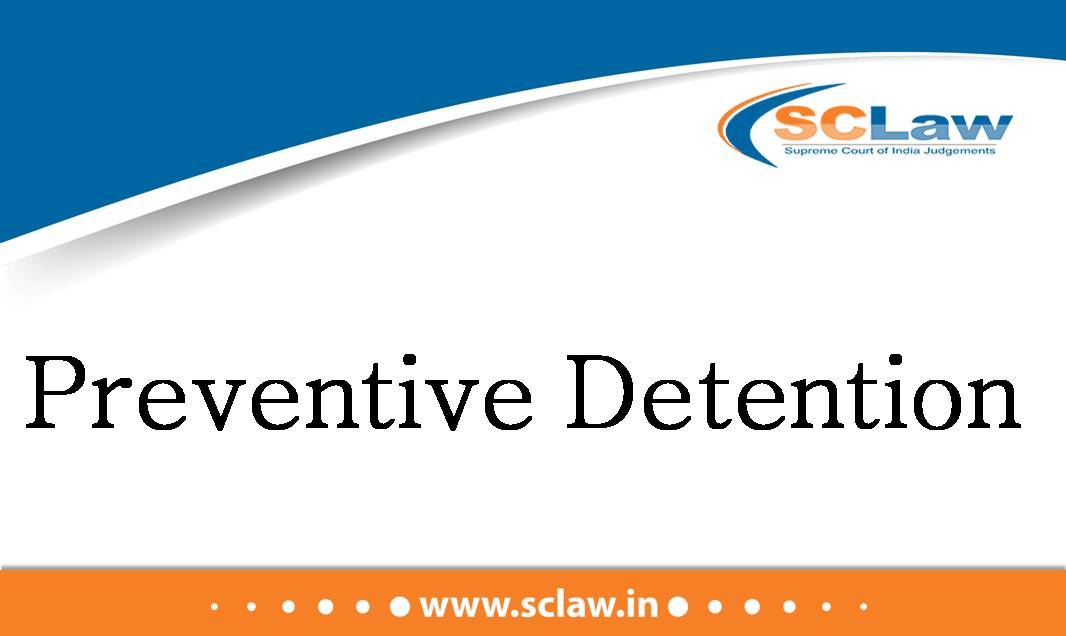An order of detention under section 3(1) of the Act can only be issued against a detenu to prevent him “from acting in any manner prejudicial to the maintenance of public order”. “Public order” is defined in the Explanation to section 2(a) of the Act as encompassing situations that cause “harm, danger or alarm or a feeling of insecurity among the general public or any section thereof or a grave wide-spread danger to life or public health” – Order of detention quashed.
SUPREME COURT OF INDIA DIVISION BENCH AMEENA BEGUM — Appellant Vs. THE STATE OF TELANGANA AND OTHERS — Respondent ( Before : Surya Kant and Dipankar Datta, JJ. ) Criminal…







